

Andrew Henderson
Founder of Nomad Capitalist and the world’s most sought-after expert on global citizenship.
ABOUT THE COMPANY
What we’re all about
MEET OUR TEAM
Meet our 60+ global team
We’re here to serve you
Your questions answered
TESTIMONIALS
Read our testimonials
Get free email updates

ACTION PLAN
Our flagship service for entrepreneurs and investors
ACTION PLAN ELITE
Create your Action Plan directly with the Mr. Henderson himself
CITIZENSHIP BY DESCENT
Claim a second passport based on familial connections
ALL SERVICES
Click here to see all our products and services
GOING OFFSHORE
Offshore Banking
Offshore Company
Offshore Trust
Offshore Gold Storage
Offshore For Americans
SECOND CITIZENSHIP
Second Passport
Citizenship By Investment
Citizenship By Ancestry
Dual Citizenship Benefits
EU Citizenship
SECOND RESIDENCE
Second Residence
Golden Visas
Residence By Investment
EU Residence
Tax Residence
FINANCE & INVESTMENTS
Tax Reduction
International Investment
Cryptocurrency
Foreign Real Estate
Asset Protection
NOMAD LIFESTYLE
Flag Theory
Lifestyle Design
Plan B Strategy
Hiring Overseas
Living In Eastern Europe
PASSPORT INDEX
Discover the world’s best passports to have in an ever-changing world
CITIZENSHIP MAP
Explore the citizenship options using our interactive citizenship map
Explore the tax details for countries using our interactive tax map
ALL RESEARCH
Click here to see all of our research and interactive tools
THE WORLD’S #1 OFFSHORE EVENT
Learn from our R&D playbook and meet like-minded people at our annual event.
NOMAD CAPITALIST THE BOOK
Andrew Henderson wrote the #1 best-selling book that redefines life as a diversified, global citizen in the 21st century… and how you can join the movement.
Where to Register Your Yacht Offshore: the Ultimate Guide

Dateline: Belgrade, Serbia
For the person who has successfully opened an offshore bank account , got a second passport and is living the lifestyle of their dreams traveling the world, the time has come to move on to the next level of flag theory. This new level is one where the focus shifts from acquisitions that are largely for diversification purposes toward purchases meant purely to improve your lifestyle – like boating.
For many who reach this stage, the next step is to combine travel and leisure by investing in the purchase of a yacht.
Unlike buying a new car – or even a house – buying a yacht is an investment of an international nature, and deciding upon the best country for yacht registration is a decision for which you need professional advice so you do not expose your assets to unnecessary taxes and liabilities. If you go into the process uneducated, your exciting new purchase might just become nothing more than a hole in the water into which you pour unnecessary amounts of money.
As with other international strategies, the country in which you register your yacht can have an enormous effect on the amount of money you will be able to save, as well as your freedom of travel. Some countries keep you from freely traveling to other jurisdictions, others charge high tax percentages or registration fees, and others do none of those things.
Choose Your Flag Wisely
When buying a yacht, the choice of yacht flags is one of the most important decisions you have to make because it can have a direct effect on your privacy, taxes, and your exposure to liability. Just as you would create a corporate structure to protect your other assets, you should do the same when it comes to yacht registration.
For this reason, many boat owners opt to register their yacht in places like the Cayman Islands to avoid the onerous taxes and regulations of the United States and other western governments. Panama , with its favorable registration policies, is the largest ship registry in the world with over 9,000 ships flying its flag.
However, it’s also very important to do your due diligence in selecting a country for yacht registration by working with a professional. Once your vessel is registered in a country, all of the country’s laws will apply to your boat. Many countries that have attractive tax structures have other issues that you’ll want to avoid, such as laws that require you to hire a crew completely composed of nationals from that country.
You will also want to register your yacht in a country that is well respected by the US and the EU. If you choose a country with a bad reputation, it can limit where you are allowed to travel, or at the very least, make you subject to more detentions and inspections.
The flag state has the responsibility to enforce regulations over vessels registered under its flag, so yacht registration under countries on the Paris Memorandum of Understanding (Paris MoU) on Port State Control’s black or gray list will come under more scrutiny in inspections. Because of this, a large majority of yachts are flagged in British Overseas Territories, known as the ‘Red Ensign Group’ — including Bermuda, Gibraltar and the Isle of Man.
These countries have acceptable safety regulations for travel in EU countries, while also having more attractive tax structures than the UK. In fact, company tax is set at 0% in the Channel Islands , the Isle of Man, the Cayman Islands, and Bermuda .
This is particularly useful for those who wish to spend time in European Union waters, as vessels owned or used by EU residents are subject to the EU’s Value Added Tax (VAT). Private yacht registration with a non-EU flag allows an owner to operate under a “temporary importation structure” which allows for 18 months free of these taxes or customs duties. After the 18 months are over, the boat owner can re-apply for this status.
Bearing this in mind, let’s take a look at some of my favorite countries for yacht registration.
1.The Cayman Islands
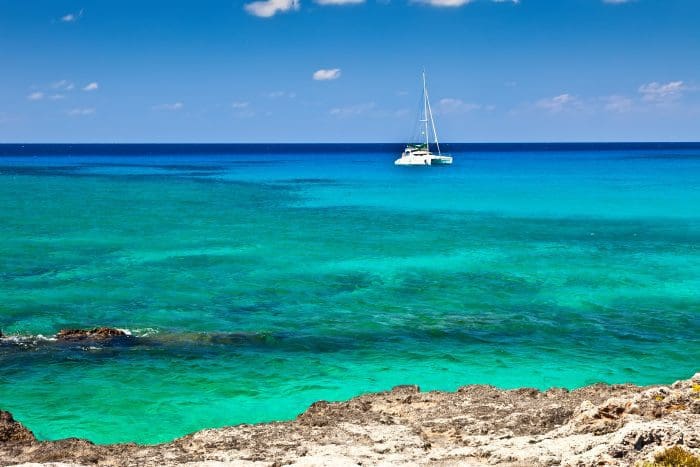
The Cayman Islands Shipping Registry is a favorite among people who own both pleasure and commercial yachts worldwide. This ship registry has been at the Port of George Town, Cayman Islands since 1903. There are two other ports in the Cayman Islands as well: The Creek in Canyon Brac and Bloody Bay in Little Cayman.
The Merchant Shipping Law, which was revised in 2016, is the governing legislation for all boats registered in the Cayman Islands. The law offers many different types of yacht registration, including full registration, interim registration, provisional registration, a ship under construction registration, and demise charter/bareboat registration. An owner who is having a vessel built might find this convenient so he or she can register it as a boat under construction and then change to full yacht registration later.
As I mentioned above, the Cayman Islands is a part of the Red Ensign Group. This means that getting your yacht registration in the Cayman Islands flags your vessels as a British Ship, granting it protection by the British Royal Navy.
Because time is crucial for so many people, the Cayman Islands Ship Registry (CISR) can also expedite the registration process for those who need to be registered immediately if they pay their expedition fee. In addition, the CISR has representative offices in Fort Lauderdale, London, Cannes, Athens, Tokyo, and Singapore where you can have ship registry certificates issued immediately if needed.
Yachts that are registered with the Cayman Islands as pleasure yachts and are not engaged in trade are granted a License to Cruise the water of the United States which will allow them to enter, depart, and cruise within U.S. waters. These vessels will only need to report to U.S. customs when entering the country or changing customs districts.
Assuming you meet all of the required qualifications, there are no restrictions or rules concerning the nationality of the master or the crew of your ship. In addition to the Cayman Islands being a tax neutral environment, the jurisdiction provides vessel owners with banking facilities and directorship services.
Overall, vessels registered in the Cayman Islands benefit from all the privileges of the British flag, while simultaneously having the tax-free and confidentiality perks of the Cayman Islands.
2. The Netherlands

Many people consider Holland to be an ideal location for yacht registration because the country is flexible and straightforward, whereas most other European countries follow stricter rules and regulations. The registration process is fast compared to that of other countries and requirements are minimal.
To register under the Dutch flag, the process is easiest if you are either an EU citizen, Swiss, Norwegian, or own a company registered in the EU.
One of the main advantages of the Netherlands is that you can be registered under the Dutch flag in as little as three days. That is why Holland is typically preferred over countries like Italy, France, and Spain where there is a longboat registration process in addition to high registration fees. A lot of yacht owners solve this problem by registering under the Dutch flag. Taxes and registration requirements in the Netherlands are minimal, allowing the whole process to be completed in three days, assuming you meet the necessary criteria.
Boat owners do not have to be of Dutch nationality, nor do they have to have a residence in the country. The only documents you must have are an ID card or passport and you must provide proof of ownership of your boat. Because so little documentation is needed, renewing your yacht registration is also a fairly simple process.
The process is easiest, however, for people who are Dutch, Swiss, Norwegian or have a company based in the EU. If you are not Dutch, Swiss, or Norwegian, and if you do not have a company registered in the EU, you can still register by paying a fee to have a United Kingdom Ltd. set up in your name.
The Ltd. will cost you 349 EUR upfront and 249 EUR every year after that. Once the Ltd. is set up, you’ll receive your registration within three to five days. The documentation needed is still the same. It only costs about 299 EUR for yacht registration in Holland if you are an EU citizen. It costs 648 EUR for non-EU citizens and your registration license can be delivered overnight anywhere in the world. Those prices include everything from the taxes to the mandatory Dutch address and all the costs for shipping and consultation.
There is also no requirement to have your boat inspected, making the vessel documentation process even simpler.
Types of yacht registration under the Dutch flag:
1. Light registration
Light yacht registration is for people who want fast and easy registration for navigating EU waters. With light registration, you can only sail European Union waters and the length of your yacht may not exceed 24m.
2. Global registration
Global yacht registration is for yachts that will navigate outside of European Union waters, sail worldwide, or be engaged in commercial chartering. People with Global registration can sail worldwide. Global registration is also available to Swiss or Norwegian persons regardless of whether or not they have a company in the EU.
3. The Marshall Islands
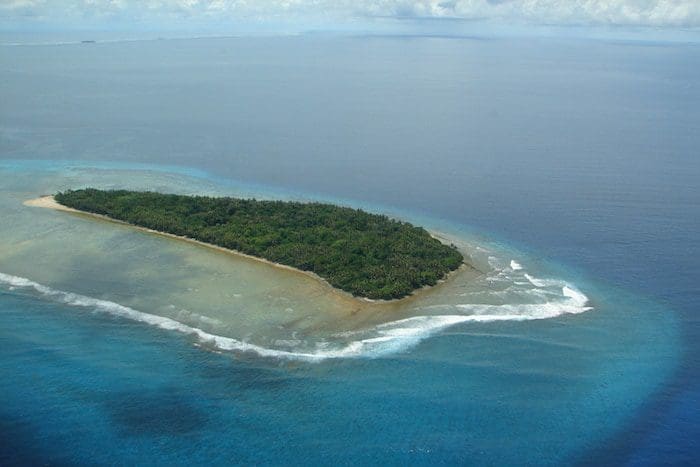
The Marshall Islands ship registry was formed in 1988. In 2001, it was expanded to allow those with commercial and private yachts to register as well, which has made the Marshall Islands a popular place to register over the last sixteen years.
The jurisdiction has also gained a lot of recognition over the years by having regional offices in major maritime cities around the world, allowing them to provide same day service to anyone, regardless of the location or time zone in which they reside.
The Marshall Islands Registry is the third-largest in the world and you can register under a one or three-year program.
You must be a Marshall Islands citizen, national, or qualified foreign maritime entity to register in the Marshall Islands. The terms “citizen” and “national” refer to Marshall Islands corporations, limited liability companies, partnerships, and associations of individuals. (You can easily complete the process to have a Marshall Islands company registered in your name so you can register your ship there.)
Assuming you complete all the necessary documents and meet all requirements, you can have your ship registered within 24 hours; you can also register your yacht as a ‘ship under construction’ if needed. You can obtain a U.S. cruising permit as a boat registered in the Marshall Islands and commercially compliant yachts can charter in Europe. In other words, you are not confined to the waters of the Marshall Islands alone, which is convenient for those who want to see more of the world.
As long as you meet proper flag requirements, yachts measuring 18m or longer that weigh less than 500 gross tons can be chartered out for up to 84 days as a private yacht limited charter (PYLC).
In addition to being white-listed under Paris and Tokyo’s MoUs, the Marshall Islands also meets the flag criteria for a low-risk ship under the Paris New Inspection Regime. Additionally, the Marshall Islands has been a part of the U.S. Coast Guard’s Qualship 21 roster for 11 consecutive years.
The Marshall Islands Registry is low tax and respected worldwide; the country is a presidential republic in free association with the United States and enjoys similar benefits to its British Overseas Territory counterparts making it a great jurisdiction for yacht registration.

Cyprus is the third largest island in the Mediterranean after Sicily and Sardinia. The country’s ship registry ranks 10th in the world with a gross tonnage of over 21 million pounds.
A ship can be registered in Cyprus if more than 50% of the shares of the registering company are owned by a Cypriot or if your company is registered in the Republic of Cyprus. An offshore company can also be registered in Cyprus if the company’s control is in the hands of Cypriots.
The Republic of Cyprus can easily register your company under their flag so you can register your yacht there. The costs of yacht registration and management are the lowest in Europe , making the jurisdiction an ideal, convenient place for many owners to register their ship.
There are many tax benefits that come with yacht registration under the Cyprus flag. An owner whose ship is registered in Cyprus is fully exempt from income taxes from operations in international waters. Additionally, no tax is payable for the wages of the crew that operates in international waters. No tax is payable on any dividend received from a shipping company in Cyprus.
Cyprus has maritime offices around the world, allowing them to work with anyone anywhere at any time. Some of their main offices are located in New York, London, Rotterdam, Piraeus, Brussels, and Hamburg. Upon registering in one of these offices, you will have the benefits of flying an EU flag, which is respected worldwide. According to the EU registry, “Sailing under EU flags demonstrates strength and represents a strong reputation.”
Like some of the other countries I have mentioned, Cyprus has been white-listed among the Paris and Tokyo MoUs, meaning it is a high-quality flag with low risk compared to many other countries who have been gray or black-listed.
It should also be noted that Cyprus is excluded from the “list of targeted flag states,” which is kept by the U.S. Coast Guard. Cyprus’s absence from the list means that inspections of the yacht with a Cypriot flag are kept to a minimum and they will experience no unnecessary delays when entering and leaving ports.
Types of yacht registration:
Cyprus offers three types of registration, including provisional registration, permanent registration, and parallel (bareboat) registration.
1. Provisional remains in effect for 6 months; after expiration, it can only be renewed once more for 3 more months.
2. Permanent Yacht Registration goes into effect 6 to 9 months from the date your yacht was provisionally registered.
3. For Parallel / Bareboat Registration your ship must hoist the Cyprus flag and “Limassol” must be marked as your port of registry. Parallel-in lasts for two years and is renewable. For parallel-out registration, your ship must hoist the foreign flag rather than the Cyprus flag and your port of registry must be the port of the foreign country. Parallel-out lasts for three years and is also renewable.
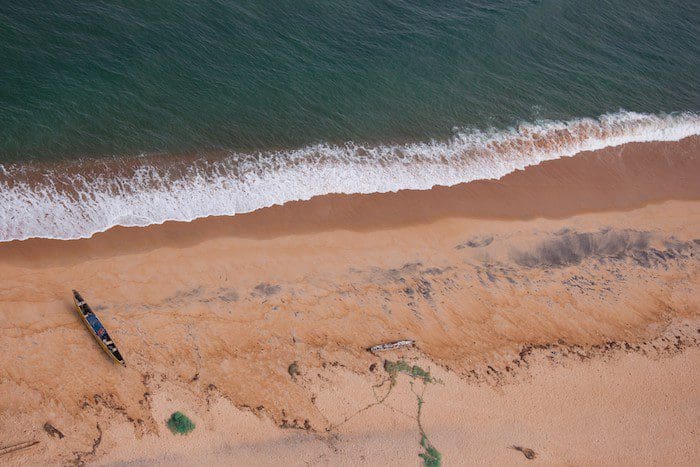
Liberia is the oldest democracy in Africa and one of the first offshore, zero tax jurisdictions. The Liberian ship registry is a favorite among owners of large vessels; the country has the second-largest registry in the world and makes up 12% of registered ships worldwide.
One of the perks of The Liberian Yacht Registration is that it is open to any ship-owner in the world and there are absolutely no restrictions on the nationality of your crew or country of construction. This makes Liberia appealing to many ship-owners who either cannot register somewhere because of their nationality or can only register by paying an additional fee.
Liberia has been white-listed on the Paris and Tokyo MoUs and has also been approved by the International Maritime Organization AND the U.S. Coast Guard. This, combined with the country’s other features, means that the Liberian Registry is known as “the world’s largest quality registry, renowned for excellence, efficiency, safety and innovative service”.
The following types of vessels can be registered in Liberia:
Vessels under construction, new buildings, vessels being transferred from other flags, offshore vessels, vessels in lay-up, and vessels involved in international, coastal, or domestic trading. You may also have a dual flag if your ship is bareboat registered.
The Liberian Registry is owned and operated by the United States. Additionally, service is available 24 hours a day, 7 days a week, making things very convenient for those wishing to do yacht registration under the Liberian flag. There are over 400 nautical inspectors, so there is always someone available to attend to vessels.
Vessels registered in Liberia are taxed with a fixed fee, which depends on the tonnage of your ship. The tax is applied yearly, so there should be no surprises. However, t here are no taxes on operations and your profits are not assessed.
The Liberian flag is accepted in many EU countries — the United Kingdom, Germany, and Holland are only a few countries in the European Union that accept the Liberian flag. In addition, Liberia is highly rated for safety and accident prevention, which makes this country even more attractive for your yacht registration.
Liberia is recognized every year for having high standards. The country has an above-average performance in safety and accident prevention as well as in independent statistical reports. Liberia also has a network of 100 security inspectors to inspect ships when necessary; this is something that was implemented post-9/11.
According to information provided by the Liberian Registry website, “The “Maritime Services Award” is for exceptional achievement or contribution to any service sector of the America’s maritime industry by a company, individual, or organization. According to Lloyd’s List criteria for this award, “The winner must be able to demonstrate how they have set themselves apart, going above and beyond best practice to offer the shipping industry something exceptional.”
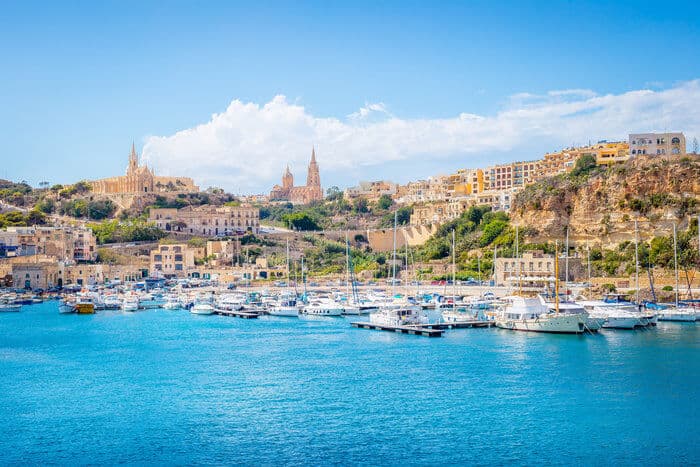
The Maltese ship registry is the largest in Europe and one of the largest in the world; it is one of the most popular countries in the world for pleasure yacht registration. The country has EU compliant legislation, clear laws relating to yacht mortgages, low registration costs and is well respected across the globe.
Malta became a member of the European Union in 2004, so yacht registration here comes with the perks of sailing an EU flag, including protection by the British Royal Navy. Like the other countries I’ve mentioned, Malta has been white-listed, providing ship-owners with a sense of security when you go through the yacht registration process under the Maltese flag.
If you’re an EU, EEA, or Swiss national, you can hold your vessel in your personal capacity. However, if you’re a non-EU/EEA/Swiss citizen you must hold your yacht through a Maltese or foreign company.
When it comes to taxes, it is important to note that companies operating commercial yachts out of Malta are exempt from income tax on any income generated by the operation of their yachts. They are also exempt from any VAT tax on the high seas. What sets Malta apart from many other countries besides tax policy is that there are no restrictions on the nationality of the master, officers, or crew of your ship.
Another perk that Malta shares with Liberia is that there is round-the-clock service, so you can feel safe and secure registering in the country. And, as long as you meet all flag requirements, any type of vessel can be registered — that means pleasure yachts, oil rigs, vessels under construction, and anything in between.
W hen it comes to the age or trading, boats between 10 and 15 years must pass inspection by an authorized inspector within one month of provisional registration and ships over 15 years old must pass inspection before being provisionally registered.
7. The British Virgin Islands
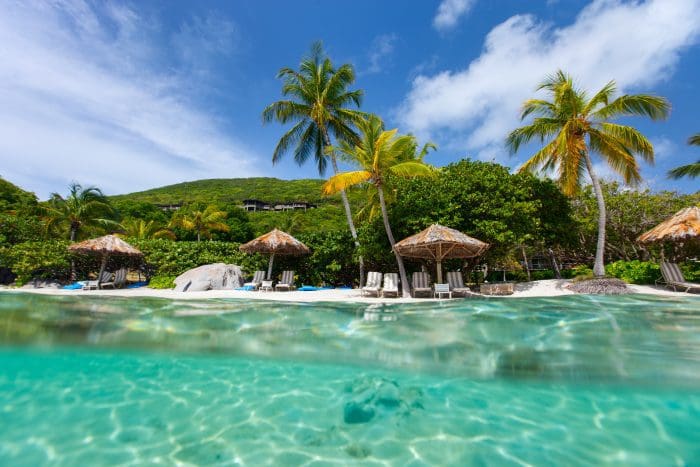
The British Virgin Islands is the latest country to join the Red Ensign Group (2014). Now, the British Virgin Islands can register any type of ship and any size. Not only that, yacht registration under the BVI flag grants access to all the ports in the world. There are restrictions with almost all other registries when it comes to this, so the fact that a BVI flag gives you access anywhere sets the country far apart from the rest.
Another advantage that makes the jurisdiction one of the most attractive is that the British Virgin Islands is tax neutral. The islands are outside the scope of the EU value added tax (VAT) laws, meaning that there is no sales tax when purchasing goods or services.
As is the case with the Cayman Islands and Malta, the Red Ensign Group flag grants protection by the British Royal Navy to those vessels registered under the British Virgin Islands flag. Similar to the other countries listed, you can register under the BVI flag even if you are not a citizen and even if you do not own a company there; you will need to register a company in the BVI to do so, but this can be completed in a matter of hours.
When it comes to the registration process, it usually takes two to six months, meaning that it is not as short as some of the other countries, but it’s still not too terribly long.
As I have mentioned in previous articles, the British Virgin Islands has one of the most stable governments and economies in the world, which makes ship owners who register there feel very safe and secure when compared to other countries who have more enemies or corruption within the government.

Panama is not only a popular place when it comes to offshore banking or getting a second passport, it also holds the largest ship registry in the world, having over 9,000 ships registered under the country’s flag.
Most countries require a minimum amount of weight, but Panama does not. The only exception to this rule is if your ship is older than 20 years, requiring that the ship is inspected in order to be registered.
There is usually some downtime when someone transfers their ship from one flag to another, but that is not the case when you are transferring to Panama. Panama has a very simple transferring process; for example, numerous other countries make you dry dock for inspection and Panama does not. Because their process is so easy, it eliminates the concern that ship and business owners have concerning downtime.
The good news for all the shipping companies, ship owners, and merchant shipping companies is that you can have dual ship registry in Panama, but if you were registered in the other country first, you must have consent from that country to register in Panama, too.
Instead of taking your ship’s size or tonnage into consideration, Panama charges a flat yacht registration fee to keep things simple. If you are not a Panamanian or an owner of a Panamanian business, you’ll pay a flat fee of $1,500 to register your yacht. If you are Panamanian, it costs $1,000 to register your yacht. Once you are registered, you will have access to Panama’s round-the-clock service.
Additionally, once you are assigned provisional yacht registration, you have six months to provide the proper vessel documentation to transfer your provisional yacht registration to permanent registration. Your yacht registration certificate is valid for two years and renewal costs are low.
Many countries require yacht owners to pay taxes when they register their ship, but Panama does not. There are also no taxes on profit that is made through international trade. You do not have to pay taxes on wages for your crew members either. The main reason people choose to register in Panama is this lack of taxes. When registering in Panama, people are legally reducing tax costs and that would not be the case if they were to register in many other jurisdictions.
There is no one best ship registry in the world, but there are many you can choose from to keep your investment safe. Finding the right one for you will depend on what you value when it comes to naval protection, taxes, privacy, and ease of travel.
If you have already registered your vessel, where did you choose to go for your yacht registration and would you recommend it to others? Feel free to comment below.
If you liked this article and are curious about how to apply the Nomad Capitalist lifestyle for yourself, check out the quick video below. Then, if you’d like some help doing it, click here to let me know .
GET ACTIONABLE TIPS FOR REDUCING TAXES AND BUILDING FREEDOM OVERSEAS
Sign up for our Weekly Rundown packed with hand-picked insights on global citizenship, offshore tax planning, and new places to diversify.
Are you a US citizen?
YOU MAY ALSO LIKE

The Best Nomadic Lifestyle Jobs (How to Land One)
Once reserved for the most adventurous, who had the ideal job, living as a digital nomad is now...

Digital Nomad Lifestyle: All Pros and Cons to Keep in Mind
This article discusses the digital nomad lifestyle and ways in which it can add immense value to...
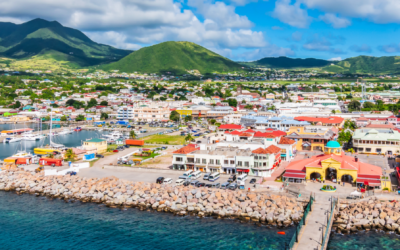
St Kitts Travel Guide for Families and Couples
This travel guide discusses everything you need to know before traveling to St Kitts. We will...

49 Digital Nomad Visas to Get: The Ultimate Digital Nomad Visa List
The world has dramatically changed in the past few years thanks to the pandemic. Now, workers and...
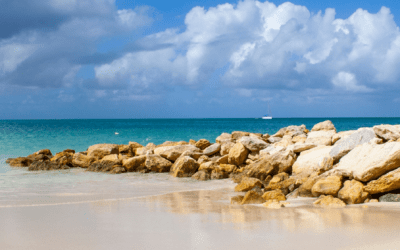
Traveling to Antigua: Our Favorite Luxury Hotels
This article discusses traveling to Antigua and our favorite luxury hotels there. The two sister...

The Best Beach Towns in Mexico for Families and Expats
This article discusses the best beach towns in Mexico for families and expats. We will also...
Get an Insurance Policy Against Your Government
Have options so that no one government controls you or your wealth. From strategic citizenship planning to real estate overseas, Nomad Capitalist has helped 1,500+ high-net-worth clients double their personal and financial freedom.
What do you want to accomplish?
Let us know your goal and we will tell you how we can help you based on your details.
REDUCE TAXES OFFSHORE
CREATE A GLOBAL PLAN B
DIVERSIFY AND PROTECT WEALTH

UNITED STATES

UNITED KINGDOM

EU COUNTRIES

Tax Amount ($US Dollars)
POLITICAL INSTABILITY
ECONOMIC INSTABILITY
MISSED OPPORTUNITIES
TRAVEL RESTRICTIONS
HIGH TAX LIABILITIES
RISK MANAGEMENT
MARKET PROTECTION
WEALTH PRESERVATION
OPPORTUNITY CAPITALIZATION
ESTATE PLANNING
Email Address
We handle your data according to our Privacy Policy . By entering your email address you grant us permission to send you the report and follow up emails later.
- Registration of ships and fraudulent registration matters
- Legal Affairs

Ship registration
Registration of a ship plays an imperative function towards safety and security of the maritime transport and significantly contributes towards the protection and preservation of the marine environment.
The general mechanism for establishing a ship's nationality and for regulating shipping is registration of the ship in a particular State. By linking a ship to a State, the system of ship registration indicates that that State has the right to protect that ship in international law.
Legal framework
A core principle in public international law is the freedom of the high seas, as laid out in article 87 of UNCLOS . To balance this freedom with the need to avoid disorder and misuse, international law has provided a framework for the regulation of shipping. This framework rests upon two core rules:
- each State shall fix the conditions for the grant of its nationality to ships, for the registration of ships in its territory, and for the right to fly its flag (article 91 of UNCLOS); and
- the State must effectively exercise its jurisdiction and control in administrative, technical and social matters over ships flying its flag (article 94 of UNCLOS).
Article 91(1) of UNCLOS acknowledges the right of every State to "fix the conditions for the grant of nationality and for the right to fly its flag." The same article provides that there "must exist a genuine link between the State and the ship." The purpose of the "genuine link" requirement in UNCLOS is to secure more effective implementation of the duties of the flag State under article 94 of UNCLOS.[1]
There is currently no binding international framework to regulate the registration process itself. The 1986 UN Convention on Conditions for Registration of Ships[2] establishes international standards for the registration of vessels in a national registry, including references to the genuine link, ownership, management, registration, accountability and the role of the flag State. However, the Convention has not entered into force.[3]
Open registry/closed registry
Each country sets its own laws and regulations on the registration of ships [4]. Some countries only register vessels with ties to the country through ownership or crewing ("closed registries"). Other countries allow foreign-owned or controlled vessels to use their flag through an "open registry." Others just choose not to allow the use of their flag for international trade at all.
Since open registries are now widely used around the world, IMO has focused on a strategic approach to ensuring that flag States adequately assume jurisdiction and control over shipowners and ships that are flying their flags in accordance with article 94 of UNCLOS.
IMO initiatives with regards to strengthening flag State and port State jurisdiction and control
IMO has adopted and implemented a number of measures to support and enhance flag (and port) State jurisdiction and enforcement. These include:
- IMO Member State Audit Scheme ;
- IMO Ship Identification Number Scheme [5] and IMO Unique Company and Registered Owner Identification Number Scheme [6]: these two schemes have been made mandatory under SOLAS regulation XI-1/3 and XI-1/3-1, respectively (Link to IMO webpage);
- continuous Synopsis Record (CSR): security-related requirements;
- resolution to prevent registration of " phantom " ships[7];
- recommended procedure to enhance the transparency of the condition of the ship on the occasion of the transfer of ships between flag States[8];
- Cape Town Agreement of 2012 and the STCW-F Convention: flag State responsibilities in relation to fishing vessels and fishers ;
- collection of data: the Port State Control ( PSC ) module in GISIS aims at improving transparency and accountability with respect to standards on ships and fishing vessels;
- work of the Sub-Committee on Implementation of IMO Instruments (III); and
- IMO/ILO work on seafarer issues: database on abandoned vessels created by the Joint ILO/IMO Ad Hoc Expert Working Group on Liability and Compensation Regarding Claims for Death, Personal Injury and Abandonment of Seafarers.
In July 2005, an ad hoc Consultative Meeting of Senior Representatives of International Organizations on the "Genuine Link" highlighted the obligations imposed upon flag States by UNCLOS[9]. The meeting stressed the need to strengthen flag State jurisdiction and highlighted the subsequent improvement in flag States' enforcement of their international legal obligations as a result of the work of IMO.
Fraudulent registration and fraudulent registries of ships
Fraudulent registration and related unlawful practices include the registration of vessels without the knowledge or approval of the relevant national maritime administration. Such fraudulent registrations are accomplished through a combination of tactics that may include the following:
- Terminated registry: where a vessel, formerly entitled to fly the flag of a given State, continues to fly that flag after the vessel's registration with the flag State has expired or has otherwise been terminated.
- Fraudulent representations to IMO: the submission of fraudulent documentation to IMO, without the knowledge of the cognizant flag State authority, in order to obtain IMO documentation and ship identification numbers. Fraudulent registration companies may operate with authentic‑looking websites and claim to be the official registration offices authorized to grant to ships the nationality of the State concerned.
- Broadcasting falsified Automatic Identification System (AIS) data: this tactic involves the intentional manipulation of AIS data to materially alter the ship's identifying information or to reflect the AIS data of an entirely different vessel.
Legal Committee work on fraudulent registration of ships and fraudulent operation of registries
Th e problem of fraudulent registration of ships and fraudulent operation of registries was first raised at IMO by the Democratic Republic of the Congo (DRC) in 2017 during the 104th session of the Legal Committee. The DRC reported that approximately 73 vessels had been fraudulently using its flag and that illegal fishing was being carried out in its waters to its economic detriment.
Fraudulent registration of ships prevents lawful registries from exercising effective jurisdiction and control over vessels at sea, deprives lawful registries from obtaining legitimate revenue while unjustly enriching fraudulent actors and exacts unjustified reputational harms on States when vessels engage in illicit activities under the cloak of a fraudulent registration. Furthermore, fraudulently registered ships may not be in compliance with safety and environmental protection standards, endangering the vessels' crew and posing an increased threat of damage to the marine environment.
In 2018, the Legal Committee recognized the need for a multi-pronged approach and that the solution would involve making accurate information about the status of a nation's registry widely, quickly and accurately available to shipowners and insurers, as well as public officials. Following that, the Secretariat reported on several cases related to the fraudulent use of a country's flag, and/or to the fraudulent operation of a registry without the purported flag country's permission or knowledge. These cases concerned, in addition to DRC, the Federated States of Micronesia, Fiji, the Maldives, Nauru, Samoa, the United Republic of Tanzania and Vanuatu. [10]
The Secretariat has been studying the cases received reporting on fraudulent use of a flag or of a registry and collaborating with IHS Markit to improve the display in GISIS of information on a ship which was confirmed by an Administration as not legally registered under that Administration's flag.[11]
Enhancing contact points database
Following the 106th session of the Legal Committee, in 2019, the Secretariat has developed a new function in the Contact Points module in GISIS that would be a comprehensive database of registries of ships, where information for all flags could be available in one place. The Committee also agreed that IMO should work with the UN Security Council to establish an easily searchable database, by IMO number and vessel name, of vessels currently the subject of, or designated pursuant to, UNSC resolutions.
IMO has also taken steps to thoroughly review the authenticity of requests to access IMO web accounts.
Resolution - Measures to prevent the fraudulent registration and fraudulent registries of ships
In order to establish even more robust procedures for the communication of information to IMO, the Assembly adopted a resolution on Measures to prevent the fraudulent registration and fraudulent registries of ships ( A.1142(31) ).
The Assembly resolution includes a procedure for communicating information on ship registries to IMO, including information on the name of national governmental body(ies) and authorized or delegated entities in charge of ship registration. Its aim is to allow the IMO Secretariat to verify the information, through the appropriate channels
Recommended best practices
The Committee has also approved a LEG circular on Recommended best practices to assist in combating fraudulent registration and fraudulent registries ( LEG.1/Circ.10 ).
- According to the International Tribunal on the Law of the Sea (ITLOS) in the 1999 case, M/V Saiga (No. 2).
- (1987) 26 ILM 1229. https://treaties.un.org/Pages/ViewDetails.aspx?src=TREATY&mtdsg_no=XII-7&chapter=12&clang=_en
- The Convention requires 40 signatories whose combined tonnage exceeds 25% of the world total. As of March 2020, fifteen States had ratified or acceded to the Convention (Albania, Bulgaria, Côte d'Ivoire, Egypt, Georgia, Ghana, Haiti, Hungary, Iraq, Liberia, Libya, Mexico, Morocco, Oman, and Syria) and the Convention had been signed, subject to ratification, acceptance, or approval, by further nine States (Algeria, Bolivia, Cameroon, Czech Republic, Indonesia, Poland, Russian Federation, Senegal, and Slovakia).
- See Nigel P Ready, Nationality, Registration, and Ownership of Ships in The IMLI Manual on International Maritime Law: Volume II: Shipping Law.
- A.1078(28), IMO ship identification number scheme.
- MSC.160(78), Adoption of the IMO unique company and registered owner identification number scheme.
- A.923(22), Measures to prevent the registration of "phantom" ships.
- See MSC/Circ.1140 -MEPC/Circ.424.
- The report of the Meeting was forwarded to the United Nations Secretary-General in pursuance of United Nations General Assembly resolutions 59/24 and 59/25 and subsequently submitted to the General Assembly at its 61st session (A/61/160).
- Documents LEG 106/7 and LEG 106/7/Add.1 and Circular Letter Nos.3717, 3798, 3840 and 3855.
- In such a case, a "false flag" for the particular ship is shown in the module on Ship and company particulars in GISIS. This status would change as and when the ship would be registered under a new flag.
IMLI/WMU Symposium on flag State responsibilities and the future of article 91 of the United Nations Convention on the Law of the Sea co-hosted by IMO and ITLOS ' IMO Headquarters, 5 March 2020
A Symposium on flag State responsibilities and the future of article 91 of the United Nations Convention on the Law of the Sea (UNCLOS) was organized on Thursday 5 March 2020 by the International Maritime Law Institute ( IMLI ) and the World Maritime University ( WMU ) and co-hosted by the International Tribunal for the Law of the Sea ( ITLOS ) and the IMO.
The Symposium was attended by delegates from IMO Member States, representatives from international organizations, maritime lawyers and academics.
The programme included presentations and Q&A panel sessions The available presentations can be found below.

Service Locator
- Angler Endorsement
- Boat Towing Coverage
- Mechanical Breakdown
- Insurance Requirements in Mexico
- Agreed Hull Value
- Actual Cash Value
- Liability Only
- Insurance Payment Options
- Claims Information
- Towing Service Agreement
- Membership Plans
- Boat Show Tickets
- BoatUS Boats For Sale
- Membership Payment Options
- Consumer Affairs
- Boat Documentation Requirements
- Installation Instructions
- Shipping & Handling Information
- Contact Boat Lettering
- End User Agreement
- Frequently Asked Questions
- Vessel Documentation
- BoatUS Foundation
- Government Affairs
- Powercruisers
- Buying & Selling Advice
- Maintenance
- Tow Vehicles
- Make & Create
- Makeovers & Refitting
- Accessories
- Electronics
- Skills, Tips, Tools
- Spring Preparation
- Winterization
- Boaters’ Rights
- Environment & Clean Water
- Boat Safety
- Navigational Hazards
- Personal Safety
- Batteries & Onboard Power
- Motors, Engines, Propulsion
- Best Day on the Water
- Books & Movies
- Communication & Etiquette
- Contests & Sweepstakes
- Colleges & Tech Schools
- Food, Drink, Entertainment
- New To Boating
- Travel & Destinations
- Watersports
- Anchors & Anchoring
- Boat Handling
U.S. Coast Guard Vessel Documentation FAQs
Advertisement
Wondering how to renew or document a vessel with the U.S. Coast Guard? BoatUS answers your most common questions on vessel documentation.
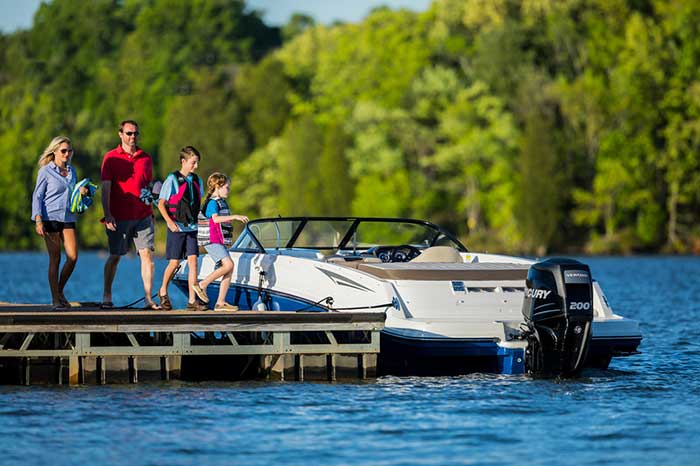
What is USCG vessel documentation?
Vessel documentation is the process of registering a boat with the U.S. Coast Guard National Vessel Documentation Center. Unlike state titling, USCG vessel documentation occurs at the federal level.
What is a USCG Certificate of Documentation?
A USCG Certificate of Documentation establishes the ownership and nationality of a vessel. Recreational vessels over five net tons have the option to document their vessel with the U.S. Coast Guard and obtain a Certificate of Documentation.
What are the benefits of Coast Guard vessel documentation?
There are three scenarios where you might want to document your recreational boat.
1. You plan to use your boat in international waters. A Certificate of Documentation is internationally recognized and makes it much easier for an American vessel to enter and leave foreign ports.
2. You don’t want to display state registration numbers for aesthetic reasons. A documented vessel does not display state registration numbers. Instead, they visibly display their name, hailing port, and are subject to Coast Guard lettering requirements .
3. You opted to finance your boat and the bank requires vessel documentation. Lenders will frequently require eligible vessels to have documentation because documented vessels qualify for preferred mortgages, and the Coast Guard cannot make changes in documentation (e.g., change of vessel ownership) without consent from the lender.
Can a boat be both titled and documented?
No. A documented vessel may not be titled by a state. However, some states may require documented vessels to maintain their state-level registration. Regardless of registration status, all vessel owners must comply with state laws and pay applicable state taxes.
Is my boat eligible?
To be eligible for U.S. Coast Guard vessel documentation, recreational vessels must be wholly owned by a U.S. citizen and measure a minimum of five net tons. Vessels greater than 27 feet are likely to meet the five net ton minimum requirement.
What does it cost?
As of January 2021, an initial Certificate of Documentation cost $133. A full schedule of fees and services is listed on the Coast Guard website.
Are vessel documentation services legitimate?
Be on the lookout for third-party companies selling vessel documentation and renewal services . While legitimate and legal, these companies are not endorsed by the Coast Guard. They also typically charge three times more than the Coast Guard National Vessel Documentation Center.
How do I document a vessel with the USCG?
Boat owners can document their vessel or renew their Certificate of Documentation directly through the Coast Guard's National Vessel Documentation Center . Owners will generally need to submit:
- An application for documentation ( form CG-1258 )
- Proof of ownership (e.g., state title, state registration, form CG-1340 Bill of Sale, form CG-1261 Builders Certificate)
- An application for simplified measurement ( form CG-5397 ), if the vessel has not been previously documented
See the Coast Guard National Vessel Documentation Center website for complete instructions, forms, pricing, FAQs and contact information.
How do I renew my USCG vessel documentation?
A renewal application can be made on the National Vessel Documentation Center's website . Expect to receive a notice of renewal from the Coast Guard, 45 days before expiration.
The Coast Guard is currently transitioning from single-year renewal to five-year renewal.
From January 1, 2019 to December 31, 2021 renewal costs $26 a year and recreational boaters can select a validity period, from one to five years.
Beginning January 1, 2022 recreational Certificates of Documentation will only be issued for a validity period of five years. The new five-year documentation is the only renewal option available and is fixed at $130.

How do you transfer ownership of a documented vessel?
Once you’ve sold a documented vessel, there are a few important after-the-sale details to be aware of. For example, you must submit a U.S. Coast Guard Bill of Sale ( CG-1340 ) or fill out the Sale of Transfer of Vessel section on the back side of the Certificate of Documentation.
Source: NVDC FAQ page
Related Articles
The truth about ceramic coatings for boats.
Our editor investigates the marketing claims of consumer-grade ceramic coatings.
Fine-Tune Your Side Scan Fishfinder
Take your side-scanning fishfinder off auto mode, and you’ll be spotting your prey from afar in no time
DIY Boat Foam Decking
Closed-cell foam flooring helps make boating more comfortable. Here’s how to install it on your vessel
Click to explore related articles
Fiona McGlynn
Contributing Editor, BoatUS Magazine
BoatUS Magazine contributing editor Fiona McGlynn and her husband sailed their 35-footer trans-Pacific for two years. Now living north of 59, she’s part of their local search and rescue team and edits WaterborneMag.com, a millennial boating website.
BoatUS Magazine Is A Benefit Of BoatUS Membership
Membership Benefits Include:
Subscription to the print version of BoatUS Magazine
4% back on purchases from West Marine stores or online at WestMarine.com
Discounts on fuel, transient slips, repairs and more at over 1,200 businesses
Deals on cruises, charters, car rentals, hotel stays and more…
All for only $25/year!
We use cookies to enhance your visit to our website and to improve your experience. By continuing to use our website, you’re agreeing to our cookie policy.

The global authority in superyachting
- NEWSLETTERS
- Yachts Home
- The Superyacht Directory
- Yacht Reports
- Brokerage News
- The largest yachts in the world
- The Register
- Yacht Advice
- Yacht Design
- 12m to 24m yachts
- Monaco Yacht Show
- Builder Directory
- Designer Directory
- Interior Design Directory
- Naval Architect Directory
- Yachts for sale home
- Motor yachts
- Sailing yachts
- Explorer yachts
- Classic yachts
- Sale Broker Directory
- Charter Home
- Yachts for Charter
- Charter Destinations
- Charter Broker Directory
- Destinations Home
- Mediterranean
- South Pacific
- Rest of the World
- Boat Life Home
- Owners' Experiences
- Interiors Suppliers
- Owners' Club
- Captains' Club
- BOAT Showcase
- Boat Presents
- Events Home
- World Superyacht Awards
- Superyacht Design Festival
- Design and Innovation Awards
- Young Designer of the Year Award
- Artistry and Craft Awards
- Explorer Yachts Summit
- Ocean Talks
- The Ocean Awards
- BOAT Connect
- Between the bays
- Golf Invitational
- Boat Pro Home
- Pricing Plan
- Superyacht Insight
- Product Features
- Premium Content
- Testimonials
- Global Order Book
- Tenders & Equipment
How to choose your yacht's flag state
If you consider buying a superyacht for international cruises and chartering in the Caribbean and the Med, your lawyer or broker will tell you to register and flag the yacht offshore.
The flag you choose to fly from your transom can have a direct bearing on your privacy, taxes, exposure to liability and boarding, the vessel’s success as a commercial enterprise, and, ultimately, your enjoyment of the yacht. So how do you decide which flag best serves your purposes? There is no simple answer that covers every owner, but some basic considerations do apply.
‘The choice of flag state has, over the last few years, become one of the most important decisions owners and/or their representatives must make,’ says Mike Dean of Isle of Man-based Döhle Yachts.
A flag state is the country or governmental entity under whose laws a vessel is registered or licensed. This can be the country in which the owner resides, or more commonly in the superyacht world, an offshore ship registry in a country with laws that are attuned to the complexities of yacht ownership and charter operations.
The flag state has the authority and responsibility to enforce regulations over vessels registered under its flag, including those relating to inspection, certification and issuance of safety and pollution prevention documents.
Offshore flagging advantages
Owners who choose to flag offshore – especially those who plan to make their yachts available for charter in the EU – can benefit in many ways, including, but not limited to, mitigation of some tax burdens, confidentiality of ownership, and reassuring lenders and insurance companies. An owner who intends to operate his vessel as a private yacht and not charter might register the vessel in his home country.
However, many popular flag states have appealing and relatively simple avenues for setting up offshore corporate structures that offer favourable taxation and liability protections under a stable fiscal and legal system. In addition they have construction, inspection and regulatory compliance regimes that can streamline the process of owning and operating a large yacht.
The choice of flag state has, over the last few years, become one of the most important decisions owners and/or their representatives must make
Mike Dean, Döhle Yachts
Registering as a private yacht with a non-EU flag also allows an owner to operate under the Temporary Importation regime in Europe in which a yacht can operate for up to 18 months without the vessel being subject to customs duties or the EU’s Value Added Tax (VAT).
Owners who intend to actively pursue charter in the world’s most popular destinations – in particular, the Med, which is ringed by EU states – and the Caribbean, will generally choose to incorporate, flag offshore and register as a commercially operated vessel.
In addition to the benefits above, such structures can allow the vessel to operate within the VAT system. VAT on charters is still chargeable to the end consumer – the charterer – but the system allows operators of legitimate charter businesses to account for their input tax in the normal business sense. For instance, if a business buys food for a charter, it will pay input tax on the supply but can deduct it as an operating expense.
Good and bad flags
Registering a yacht to operate commercially subjects it to a broad range of regulations related mainly to safety.
A flag state will generally require a yacht to be in compliance with construction standards set forth by one or more of the main classification societies such as Lloyd’s Register, American Bureau of Shipping or Det Norske Veritas, as well as meeting safety and practice standards set forth by government agencies such as the UK’s Maritime and Coastguard Agency (MCA), as applied by the relevant states’ national legislation.
Choosing a particular flag is a vastly complicated matter generally settled between an owner and his attorney, but there are some basic considerations, not the least of which is the potential for the yacht to be boarded and detained by authorities. In short, there are good flags and bad flags.
‘You need to be with a flag that can provide a solid commercial registration that’s accepted in the shipping industry and accepted by the governments of the world,’ says Ken Argent of Water’s Edge Consulting Ltd.
You need to be with a flag that can provide a solid commercial registration that’s accepted in the shipping industry and accepted by the governments of the world
Ken Argent, Water’s Edge Consulting Ltd
A wise starting point would be to choose a flag on the so-called ‘White List’ as maintained by the Paris Memorandum of Understanding on Port State Control (Paris MoU).
The Paris MoU consists of 27 participating maritime administrations and covers the waters of the European coastal states and the North Atlantic basin from North America to Europe. Its mission is to eliminate the operation of sub-standard ships through a harmonised system of port state control. There are other MoU groups around the world, with similar aims.
Port officers inspect foreign ships in the Paris MoU ports, to ensure they meet international safety, security and environmental standards, and that crew have adequate living and working conditions.
Flags on the Paris White List have demonstrated strong performance in those areas and thus, are subject to fewer boardings when they enter foreign ports.
Flags on the Grey List and Black List have been deemed deficient and risk more boardings and possible detentions. Traditionally, yachts have been a low priority for Port State Control (PSC) inspections, but since the advent of the New Inspection Regime in Paris, this is no longer the case and so it is important to choose a flag with a good PSC record and a rigorous approach to safety and certification.
A wise starting point would be to choose a flag on the so-called “White List”
‘There are rogue states that remain outside the family of civilised nations, and yachts that fly those flags are not welcomed,’ says maritime attorney Michael T. Moore. ‘Generally speaking, most civilised countries have subscribed to a web of treaties designed to protect the world’s oceans from pollution, overfishing and various other unacceptable practices. Almost all seafaring nations are on the alert for out-of-pattern flags.’
Other considerations extend beyond the prospect of being boarded. ‘Lenders and insurance companies will review a flag state’s enforcement of international environment and safety and procedures and standards, compliance with international regulations and casualty record,’ says Dean. ‘A poor record will inevitably affect the decisions of the lenders and underwriters.’
The Red Ensign Group
The brokerage and management firm Edmiston Company estimates as many as 80 per cent of large yachts are flagged in the British overseas territories commonly known as the ‘Red Ensign Group’, in particular, the Cayman Islands, Gibraltar and the Isle of Man.
Factors influencing that, says Edmiston, include prestige, tradition and history; international recognition of high standards and adherence to the Large Yacht Commercial Code; ready availability of a large number of qualified surveyors; protection of British maritime law, consular services and navy; and commercial confidentiality (the owning companies can be registered in the flag state, rather than the person who owns the yacht).
As many as 80 per cent of large yachts are flagged in the British overseas territories commonly known as the Red Ensign Group
‘The Red Ensign Group uses the UK MCA’s Large Yacht Code (LYC) as the criteria for building and equipping commercial yachts,’ says Clive Harrison of Döhle Yachts. ‘The LYC has been submitted (and accepted) to the International Maritime Organisation (IMO) as the UK’s equivalent provisions under the equivalence arrangements of several international conventions (Load Lines, SOLAS and STCW).
‘Yachts built and operated under the LYC do so under internally recognised standards,’ says Harrison, ‘whilst other jurisdictions operate their own codes, these have not been presented or accepted to the IMO. Compliance with LYC can have a positive impact on resale values.’
The Red Ensign registry with the largest number of yachts is the Cayman Islands Shipping Registry. According to Peter Southgate, Advisor, Maritime Policy and Legislation Development and Shipping Master of the Cayman Registry, service is one key to the flag’s popularity.
‘The various members of the Red Ensign Group offer a very high quality flag option for any owner, and we ensure that as a group, we do not compete on quality,’ Southgate says. ‘This leaves essentially only service and the possible effects of local restrictions. For example, the UK is an EU flag and hence, temporary importation would not be available to a UK-flagged vessel.’
Flags of different colours
Most flag registries, while either an agency of a government or acting on behalf of the government, are to some extent, in competition with each other for business and offer various angles that may benefit the needs of some owners.
The Marshall Islands allows qualified private yachts to charter up to 84 days a year, but subjects them to detailed surveys heavy on lifesaving, safety and fire fighting. They also have to have a minimum safe manning certificate for when they’re chartering.
‘We look at that as an owner trying to recoup some of his expenses – not putting his yacht into a commercial mode,’ says Eugene Sweeney, senior vice president, Yacht Operations for International Registries, Inc., which provides administrative and technical support to the Marshall Islands Maritime and Corporate Administrators.
The US flag has long been problematic for ship and yacht owners due in large part to onerous regulations and manning requirements. ‘The US flag has a very unwelcoming regime of laws and regulations that make it extremely difficult for a ship of any size to be registered,’ says Moore. Matt Ruane, director of JTC Marine and Aviation, cites some specific reasons a US flag may not appeal to owners of large yachts.
If you are tempted to use the flag of a state because you like the AK-47 image on it, resist.
Maritime attorney Michael T. Moore
‘US residents often wish to purchase yachts outside the US and register on to a non-US flag in order to avoid US sales and/or use tax,’ Ruane writes. ‘US Coast Guard legislation fails to differentiate between merchant vessels and commercial yachts, meaning most large yachts would fail to meet their “Seagoing Motor Vessel” requirements, which, in essence, apply SOLAS requirements to all vessels in excess of 300GT.
‘A US-resident master and crew are required for all large yachts, unless operating privately and outside of US waters. A US flag requires US corporate or private ownership, and the concept of nominee directors and shareholders is less understood and thus, less acceptable, essentially meaning that US corporate ownership is more transparent.’
The actual cost of flagging offshore is relatively low, provided your yacht meets class requirements, which is something an owner would want to consider especially when buying a brokerage yacht. The cost of bringing a yacht up to class can be substantial.
Choosing a flag is a matter best undertaken under counsel of a maritime attorney. There are many possible avenues depending on an owner’s intended use and other considerations, but at the end of the day, most advise sticking with the tried and true.
‘If for whatever reason you are tempted to use the flag of a state because you like the AK-47 image on it,’ says Moore, ‘resist.’
Originally published: Superyacht Owners’ Guide 2012.
More stories
Most popular, from our partners, sponsored listings.
Register any vessel pleasure boat (either private or commercial) in any of our Flags worldwide (Malta, Greece, Isle of Man, Cyprus, State of Delaware, Poland, Slovenia, United Kingdom). Also, any type of fishing vessel under the Belize Flag.
Register Any Type of Pleasure Boat & Yacht and Fishing Vessels and Obtain Fishing Licenses
Register Fishing Vessels & Obtain Fishing Licenses for the High Seas from Belize
If you are looking to register any vessel, you have come to the right place! International Ship Registries (Worldwide) LLC was incorporated in 1998 to provide services for clients, shipowners, yacht owners, shipbrokers, builders, legal advisers wishing to register commercial ships and pleasure boats under various Flags.

Register your merchant ship, commercial or pleasure yacht, your fishing vessel , under various available Flags worldwide.
In order to evaluate, begin working on your project and ultimately being of service, please feel free to submit as much information as you can by completing either (or both) our Vessel Registration Form and/or our Corporate Application Form . Need a fishing license for your fishing vessel? No problem! We can handle all of the complicated forms and guide you through the maze of fishing regulations.
Need to register a vessel or Mega Yacht? Visit our Mega Yacht VAT Deferment website for more information!
Asset Tokenization: Unlocking The Value Of Maritime Assets
Ship tokenization is a groundbreaking concept revolutionizing the maritime industry. By converting ship ownership into digital tokens on a blockchain, it introduces a transparent and efficient way to buy, sell, and trade ownership fractions in vessels. This innovative approach enhances liquidity, widens investor participation, and creates new avenues for financing ships. CLICK HERE to learn more!
MORE SERVICES:
Diplomatic appointments.
We are able to help you through our diplomatic network in becoming a Honorary Consul, Consul or Consul General or Ambassador at Large.
Vanuatu New Citizenship
Vanuatu citizenship provides many things to many people, each looking at their own unique reason for taking up our program.
We can register your vessel or yacht in these countries
Isle of man, state of delaware (usa), united kingdom, langkawi, malaysia, we can register your vessel (any type/size of a tanker, bulk carrier, containership, lng/lpg, etc) under the flags of panama , st. vincent & the grenadines , st. kitts & nevis , palau , cook islands , vanuatu , belize , togo , sierra leone , gabon , guinea bissau , guyana , sao tome & principe , tanzania . also, provide classification services through various ros, plus certificates of competency for seafarers (all ranks), etc., vessel registration client testimonials.
"My boss put me in charge of finding a service where we could register some of our shipping vessels under different country flags. I wasted hours of my time dealing with several other providers who could not get the job done. I finally discovered this website and they were able to register our vessels in no time at all. I have been utilizing their services for several years now and they have always done a great job."
Jacob Evans - Dublin, Ireland
"I have been working in the shipping industry for most of my life. Some people might think shipping is a simple thing to work on, however it is extremely complicated. Especially when it comes to registering ships in different countries. One of our long time vendors recommended International Ship Registries to us and I have nothing but amazing things to say about the level of professionalism and efficiency I have experienced with them."
Emil Larsen - Bergen, Norway
Belize Fishing Vessel Registration & Belize Fishing Licenses
International ship registration faq.
We are here to help you!

- Sample Entry
About the Official Guide to Ship & Yacht Registries
The Power of Information
Marine Money 's Official Guide to Ship and Yacht Registries (OGSR) is the premier source for ship, yacht & corporate registry news available, providing authoritative information on the use, requirements, and benefits of over 100 of the world’s flag states – open, national and international.
The OGSR contains the most current updates on company formation, taxation, registration and documentation, bareboat charter registration, crewing requirements and fees. Contact information for each country’s registry officials, company formation offices, taxation authorities and shipowners’ associations is also available.
The OGSR also features daily blog posts on maritime legal systems, seafaring and labor issues, political risk, shipping taxation, regulatory developments, port state control, international treaties and conventions, class initiatives, and business opportunities for owners and operators.
About Us | Privacy Policy | User Agreement | Contact Us | Official Guide to Ship Registries © Marine Money Inc.
Flags and maps credit to the CIA World Factbook .
powered by Kovida Inter[re]active Solutions

BoatScope TM
Visit our database page for the nation's premier boat history report with a full compliment of title search resources. Includes eight maritime databases all rolled into one convenient interface. A must-have service for any prospective buyer, marine lender, or maritime professional.
Langkawi Registry Services Malaysia Registry Services Malaysia Maritime Attorneys
Advertisement
Owner Background Search
Criminal Records Assets - Properties Personal Details
Know your seller!
Sponsored by

Malaysia Yacht Registration Summary
Malaysia yacht registration summary is a free information resource designed to inform the boating public about vessel registry requirements, recording methods, and title search guidelines for the Country of Malaysia. The data is maintained as an open wiki forum where readers are encouraged to participate by sharing knowledge and experiences with this particular country. Simply click on the "Wiki-Share" link to contribute further details or suggest a revision. the official language is Malay
This information is subject to change and should be confirmed with the respective agency.
Comments - Suggestions - Revisions .... Wiki-Share

Registry Overview
Registration office, registration requirements, recording methods, registration search.
MarineTitle.com
A Division of Maritime Partners, LLC State of Washington USA © Copyright 1998 - 2021 All rights reserved.
Terms of Use Privacy Policy Glossary Partners Contact Us
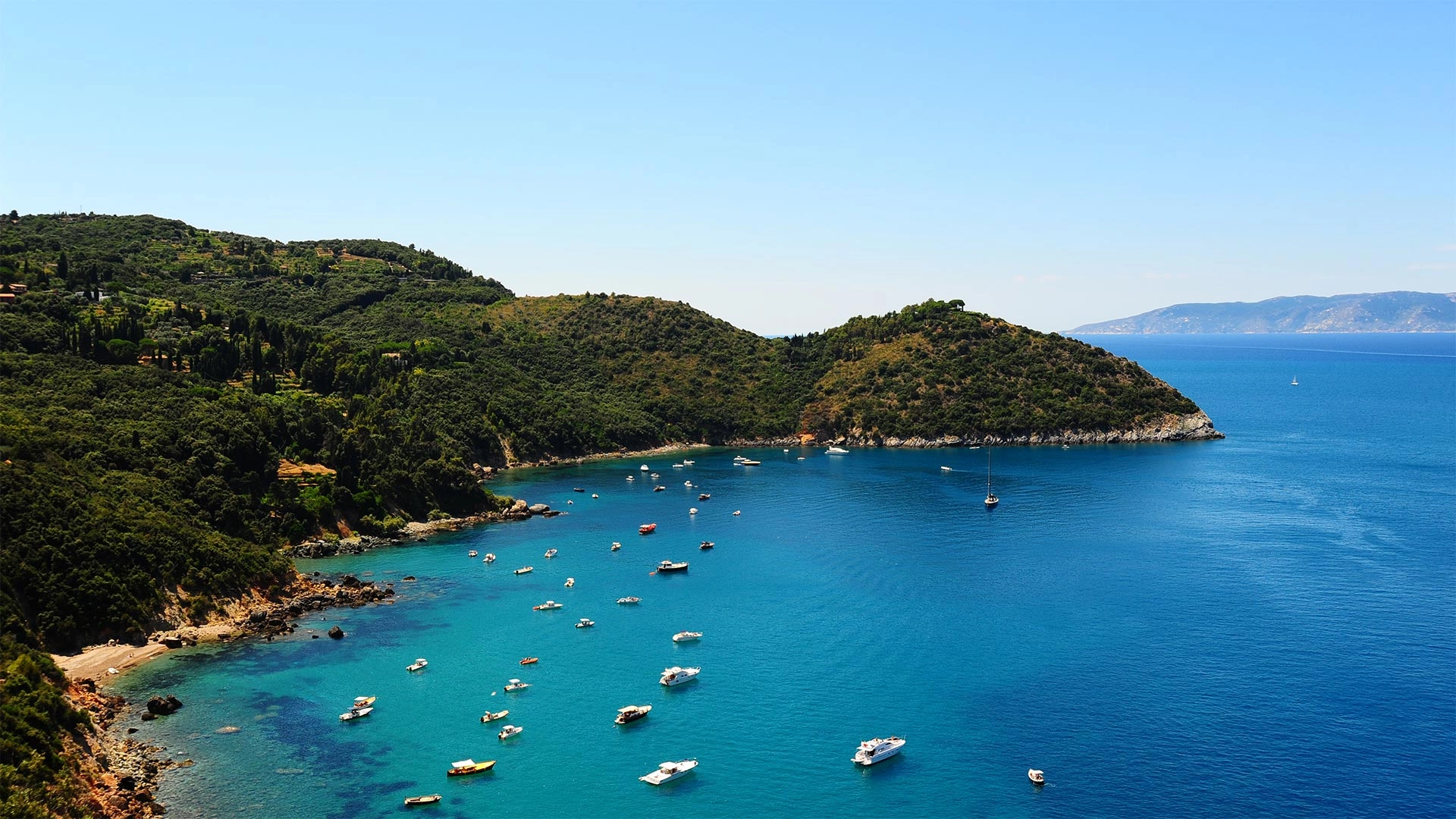
Renew Your Certificate
Recreational courses, superyacht courses, choose your location.
There is an IYT school on six continents. Begin training in the Mediterranean and finish in the Caribbean. Wherever you choose to be! IYT’s unique modular approach to yacht training has allowed the successful establishment of global partner schools offering a broad range of recreational and professional courses.

North America

South America

Learn to Sail
Become A Partner School
- Upgrade Your School
Government & Organization Approvals
- Recreational
- Privacy Policy & Terms Of Use
- Become a Partner School
- Register with IYT
- Find a School
- IYT E-Learning
- Certificate Renewal & Replacement
- Get Certified
- Recreational Training Course Progression
- IYT Passport
- Crossover Opportunities
- Course Progression
- Course Progression Interior
- Dive Boat Training
- Forms And Docs
- Instructor Training
- Personal Watercraft Operator
- Dinghy Sailing Programme
- IYT Try Sailing
- IYT Introductory Sailing Skills
- IYT Day Skipper / Crew Sail
- International Crew
- International Flotilla Skipper
- International Bareboat Skipper
- International Flotilla Skipper Sail – Catamaran
- International Bareboat Skipper Sail – Catamaran
- International Certificate of Competency (ICC Certificate)
- Powerboat Skipper
- Yachtmaster Coastal (Power or Sail)
- Yachtmaster Coastal Sail – Catamaran
- Yachtmaster Offshore (Power or Sail)
- Yachtmaster Offshore Sail – Catamaran
- Yachtmaster Ocean
- Patron de Yates (Yachtmaster Coastal Spanish edition)
- Marine Communications (VHF-SRC)
- Small Powerboat and Rib Master (MCA Recognised)
- IYT Commercial Tender License Course
- Weather Master
- Navigation Master
- Master of Yachts Coastal/Mate 200 Tons (Power or Sail)
- Master of Yachts Limited (Power or Sail)
- Master of Yachts Unlimited
- Superyacht Chef
- Superyacht Deck Crew Course
- Superyacht Hospitality Training
- Boat Engineer Course (SCV Code for Vessels Operating in the Caribbean)
- IYT-MSWI BoatMaster Course
- Become An IYT School
- Find A School
- Course Levels
- Instructor Qualifications
- Vessel Requirements
- Vessel and Facility Requirements
- Unauthorised Schools and Other Entities
- Shipping & Delivery
- Government Approvals

TrustScore 4.9 | 982 reviews
Boat and yacht registration
We register your boat or yacht (pleasure and commercial) and arrange the entire process, find the service that best suits you, san marino yacht registration ready in just 2 days.
Depending of the length of your yacht.
- Ready in 1 week
- BlueWater Registration Services takes care of all the paperwork
- You are the sole owner and director
- Nominee shareholder and / or director is available
- Suitable for yacht registration purposes and active and dormant companies
- Low annual costs
- Economic and political stability
- Low share capital needed
- Request a Gibraltar Yacht Registration
San Marino Maritime Company Use Our Online Tax Savings Calculator
- 3.4% profit tax for 10 years
- Defer the low profit tax for the first 3 years
- Low Dividend Taxation at 5%
- San Marino has No VAT
- License Fee Exemptions
- Investment Incentives
- Deductible Expenses
- Shareholders from any nationality or jurisdiction.
- Local Director Not Required
- Limited Liability
Yacht insurance Receive the Best Possible Insurance Offer
- Offer in 1 working day
- Best priced offer
- Almost all jurisdictions accepted
- Simple online procedure
- Trusted insurance company
Polish EU Registration Provisional registration within 1-2 working days
For All Yacht Lengths.
- Including provisional registration within just 1-2 working days at no extra costs
- Available for all nationalities
- No registration survey needed for yachts till 15 meters long
- No expiry date. Valid for life
- Full EU flag registration
- Accepted worldwide
- Paris MoU Grey Listed
- No annual yacht taxes
- No maritime restrictions
- Available for commercial yachts
UK Part 1 Registration Fast 3 day procedure available!
- Low registration costs
- Valid worldwide
- Available for any nationality
- Renew after 5 years
- Dormant UK Limited company (1 year fee)
- Fast 3 days procedure available
- Class AA yacht registration
Gibraltar boat Registration
- Valid in any country in the world
- Valid without any limitations in the EU
- Perfect for VAT free yacht purchase
- Including AIS & MMSI radio license
- Also for commercial yachts
- Including dormant UK Limited company
Dutch Zeebrief Registration
- Cadastre registration
- Valid for life
- Survey mandatory
- Not for commercial yachts
- Microdots anti theft available
- Provisional registration available
Panama yacht Registration Provisional registration within 1-2 working days
- Low initial costs
- Fast registration process
- Possible for all nationalities
- Do not pay VAT when buying a yacht
- Paris MoU Whitelisted
- No yacht inspection needed
- Valid Worldwide
MMSI & AIS Radio License Service
- Mandatory for boat radio equipment
- Same day delivery
- MMSI number
- Including S.A.R. services
- VHF, AIS, radar and Epirb
- Including call sign
- Emergency contact person service included
UK Limited Company
- Lowest cost solution
- Next day delivery
- Dormant company
- No tax declarations
- Including filing of accounts
- Including filing of confirmation statements
- Perfect for NON EU yacht owners
- Suitable for any yacht registration
Gibraltar Limited Company
Irish limited company.
- Low cost company solution
- Active EU company
- Tax declarations optional
- Including filing of annual return
- Affordable annual costs
- 1-3 days delivery
- Dormant EU company
BlueWater Registration Services – Dutch Motor and Sailing Yachts Registration MMSI Services
What does a yacht registration cost.
BlueWater Registration Services charges the lowest possible prices for a yacht registration. We offer yacht registrations from countries such as Poland, San Marino, Gibraltar, The Netherlands, Panama and the United Kingdom. The costs for a yacht registration are depending of choice. You can compare boat registration costs at our comparison page. All prices communicated include all fees, taxes, shipping and consultation. This means no hidden costs!
No unnecessary bureaucracy
When requesting a yacht registration for your boat, yacht or even jet ski, we only need you to fill out our online boat registration form in a clear portal. We have separate forms for the Polish, UK, Panamese, San Marino, Dutch and Gibraltar boat registration. This is a step by step form to make sure we take care of all the paperwork so you don’t have to.
Register a boat online with fastest registration procedure
For a registration under the Polish, Panamese, UK, San Marino and Dutch flag it is possible to receive a provisional registration. You will receive this within 2 working days (except The Netherlands), so you can sail almost immediately. An Ultra-Fast procedure is available for our UK part 1 registration which allows us to get your yacht registration within 3 working days. Your registration documents will be delivered to you by courier at your home or work address. Anywhere in the world!
No inspection required to register your boat online
When registering your boat, yacht or jet ski with the Polish, San Marino, and Panama registration, there is no inspection required. You can simple request a yacht registration online. We can start the registration process immediately. The equipment requirements are minimal.
Valid all over the world
All our offered boat registrations are recognized all over the world. This precludes any problems when visiting any ports in any country. With a service record of more than 10 years, you can be sure you do business with a trusted company. BlueWater Registration Services is the European market leader when it comes to boat registrations.
European nationality or residency not required
If you do not have an European nationality or address, we are still be able to register your boat. We have various other ways to make sure you can official register your yacht under the San Marino, Polish, Panama, UK, Dutch or Gibraltar flag. In case you live outside of the EU, we can set up a dormant company with you as the rightful and only owner. San Marino, Poland and Panama accept any yacht owner from any nationality.
Bill of Sale Generator tool
We have a free Bill of Sale Generator tool available. This tool helps you to create a new Bill of Sale for your yacht. After completing the data you can submit it. We will then check all information provided free of any costs. Once approved we wil create the new bill of sale and let you know how to download it.
Recent blog entries

Signup to our newsletter
Email address:
First name:
List choice Services for consumers Services for yachting professionals or dealers
What our clients are saying

MMSI & AIS Radio License Service
Please choose one of the following MMSI Services we offer:
Please choose one of the following:
San Marino yacht registration
Request the best possible yacht insurance offer.
- Yacht registration
Current flag trends for yachts
- Main EU jurisdictions : UK, Malta, Madeira, France, Italy, Cyprus, Monaco
- Main non EU jurisdictions : Isle of Man, BVI, Cayman Island, Hong Kong, Marshall Island, Panama, St Vincent, Jersey, Guernsey
- The United Kingdom;
- The Crown Dependencies (Isle of Man, Guernsey and Jersey) and;
- The UK Overseas Territories (including Anguilla, Bermuda, BVI, Cayman Islands, Falkland Islands, Gibraltar, Monserrat, St Helena and Turks & Caicos Islands.
- Category 1 – Registries for ships of unlimited tonnage and type
- Category 2 – Registries of commercial ships and yachts of up to 150 gross registered tons (GRT) and non-commercially operated ships and yachts of up to 400 GRT dependent on signing Memorandum of Understanding with the MCA.
- Category 1 – BVI, Cayman Islands, Isle of Man, UK, Gibraltar, Bermuda;
- Category 2 – Anguilla, Flakland Island, Guernsey, Jersey, Montserrat, St Helena, Turk & Caicos Islands.
Technical documentation
- Registration form for Monaco flag
Loading, please wait...

Expertise in all areas of luxury yachting
Our purpose is to simply reintroduce value and a high degree of highly personalised and exclusive yacht services to the yachting world. As an IYR client, you will enjoy tailor-made yacht management & sales services along with world-class yachting experiences.

Luxury yacht charter
Ready for luxurious adventures aboard?
Our personal brokers connect you with the perfect vessel, tailored to your preferences, for an unforgettable journey anywhere in the world.

Your own piece of paradise
Looking to buy or sell a yacht?
IYR's experienced brokers have the tools and expertise to find you exclusive opportunities and guide you through a seamless transaction.
Unwind in Style at the World's Most Elegant Yacht Charter Locations
Elevate your next yachting vacation with our expert guidance, hand-picked activities and insider travel recommendations.
Immerse yourself in these elegant destinations and make unforgettable memories.
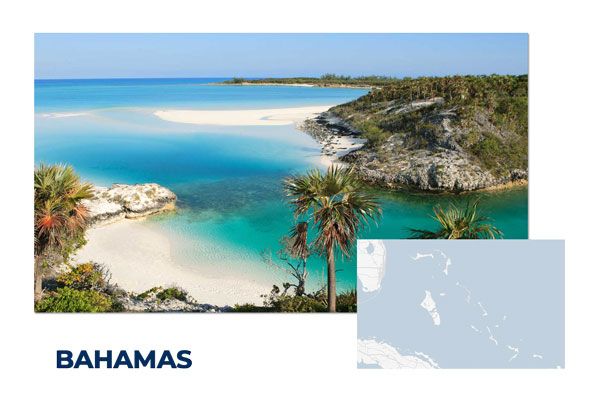
Speak with a charter specialist and book with ease
Enquire now to discuss vacation plans, available private yachts and your tailor-made travel itinerary.

YOUR NEEDS MET WITH PERSONALISED SOLUTIONS
Yacht charter management services
Turn your yacht into a revenue-generating asset with our yacht charter management services. We handle everything from maintenance and marketing to booking, so you can sit back and relax while your yacht is being expertly maintained and is available whenever you want it .

Get in touch
Do you have any questions about our services?
Email us [email protected]
Call us +376 602 717
Sales & Purchase
Destinations
Charter management
Subscribe to our monthly newsletter for the latest in luxury yachting. Get updates on unique yacht selections, captivating charter destinations, new build projects, yacht sales, and other yacht services. Join our community and immerse yourself in the world of luxury yachting
© 2009-2024 IYR - International Yacht Register, All rights reserved.
Legal & Copyright | Privacy Policy | Cookie Policy

Technical Support
- General Information
- RMI Yacht Code 2021
- Yacht Technical Support
- Private Yachts
- Commercial Yachts & PAXYs
- Dual Use (PYLC & YET)
- Manning & Crew Requirements
- Forms & Publications
- Yacht Contacts
The RMI Registry maintains a dedicated technical team and from within that team, there are yacht technical experts who provide support to yachts and their associated entities regarding the application of mandatory international and national maritime rules and regulations as well as the application of the RMI Yacht Code 2021 ( MI-103 ).
Yacht technical support ranges from assistance and advice to regulatory overview during new construction and refit projects as well as 24/7 support for registered yachts in operation. In addition, the yacht technical team provides oversight of Classification Societies and other Recognized Organizations, and provides a supporting role to the RMI’s delegation at the IMO .
For questions or support please send your inquiry to [email protected] .
Yacht Code 2021
Republic of the Marshall Islands Yacht Code 2021, as amended through August 2023 ( MI-103 )
Marine Notices
- MN 1-005-2 , Fees for Official Yacht Documents and Services
- MN 1-109-1 , Electronic Documents and Certificates
- MN 2-011-13 , International Safety Management (ISM) Code
- MN 2-011-14 , Maintenance and Inspection of Fire Protection Systems and Appliances
- MN 2-011-16 , International Ship and Port Facility Security (ISPS) Code
- MN 2-011-17 , Automatic Identification Systems (AIS)
- MN 2-011-18 , Ship Security Alert System (SSAS)
- MN 2-011-19 , Continuous Synopsis Record (CSR)
- MN 2-011-25 , Long-Range Identification and Tracking (LRIT) of Ships
- MN 2-011-26 , Application for Service Extensions / Dispensations
- MN 2-011-32 , Magnetic Compasses Adjustment
- MN 2-011-33 , Maritime Labour Convention, 2006 Inspection and Certification Program
- MN 2-011-37 , Life Saving Appliances and Systems
- MN 2-011-43 , Tender Registration and Statements of Compliance
- MN 2-011-48 , Requirements for Yachts Taking Part in Races
- MN 2-011-49 , Yacht “Mini-ISM”
- MN 2-011-50 , Use and Maintenance of Non-Steel Wires/Falls on Yachts for Lifeboat/Rescue Boat/Life Raft Davits
- MN 2-011-53 , Conducting Surveys and Issuing International Convention and National Certificates for Commercial Yachts, Passenger Yachts, and Yachts Engaged in Trade
- MN 2-011-54 , Conducting Surveys and Issuing International Convention and National Certificates for Private Yachts Limited Charter
- MN 2-011-55 , Conducting Surveys and Certificates for Private Yachts
- MN 2-011-57 , Recreational Fire Appliances
- MN-2-011-58 , Life Saving Appliances and Firefighting Systems for Private Yachts
- MN 2-013-8 , Implementation of MARPOL Annex VI, Regulations for the Prevention of Air Pollution from Ships
- MN 2-013-11 , Requirements for MARPOL Surveys for All Yachts
- MN 7-038-2 , Minimum Safe Manning Requirements for Vessels
- MN 7-041-5 , Electronic Record Books and Logbook Systems
- MN 7-042-1 , Medical Care On Board Ship and Ashore: Medicine Chest, Recordkeeping and Responsibilities and Training for Medical Care
Yacht Radio License Application Forms
Commercial Yachts:
- MI-104 , Application for Ship Radio Station License
Private Yachts:
- MI-104Y , Application for Yacht Radio Station License (exclusively for Private Yachts)
Yacht Safety Advisories
- YSA-05-24 , North Atlantic Right Whale Speed Restriction Zones
- YSA-04-24 , Threats to Yachts in Middle Eastern and North and East African Regions
- YSA-03-24 , Enclosed Space Entry Incidents
- YSA-02-24 , Counterfeit Pilot and Embarkation Ladders
- YSA 08-23 , Republic of the Marshall Islands Yachts Calling in the United States
- YSA-07-23 , European Union Safety Recall on Defective AWG Fire Hose Nozzles
- YSA-06-23 , Compliance with the Convention on the International Regulations for Preventing Collisions at Sea (COLREGS) Rule 10 and Designated Routing Measures
- YSA-05-23 , Installation, Use, and Updating of Radio Equipment
- YSA-04-23 , 2023 Tokyo and Paris Memoranda of Understanding Joint Concentrated Inspection Campaign on Fire Safety
- YSA-02-23 , Fire-fighting Outfits – Protective Clothing
- YSA-01-23 , Sunsetting of Traditional Paper Nautical Charts
- YSA 09-22 , Conditions of Entry for Vessels Arriving at United States Ports from Certain Countries
- YSA 06-22 , Guidelines for the Avoidance of False Distress Alerts
- YSA 05-22 , Non-operational Automatic Identification System on Ships in Indian Waters
- YSA 03-22 , Impact of National and International Sanctions on Republic Of The Marshall Islands Registered Vessels
- YSA 05-21 , Revised Manning Policy – Private Yachts
- YSA 02-21 , Seafarer’s Identification and Record Book
- YSA 03-19 , Corruption in Ports
- YSA 03-18 , United States Coast Guard Policy for Foreign Flagged Private Yachts Calling in the United States
Yacht Technical Circulars
- Yacht Technical Circular Index
- YachtTechCirc-2 , Delegation of Yacht Code Compliance Reviews and Surveys of New Construction and Conversion of Yachts
- YachtTechCirc-3 , Aviation Inspection Body and Recognized Organization Responsibility Matrix for Certification of Helicopter Landing Area
- YachtTechCirc-4 , Examination of a Yacht’s Hull and Related Items
- YachtTechCirc-5 , Procedures for the Transfer of Services from One Appointed Representative to Another Appointed Representative
- YachtTechCirc-6 , Amendment to the Issuance of the National Yacht Record of Safety Equipment
- YachtTechCirc-7 , Damage Control Information Onboard Republic of the Marshall Islands-flagged Yachts
- YachtTechCirc-8 , Long Range Identification and Tracking (LRIT) – Yachts
- YachtTechCirc-9 , Issuance of IMO Compliant Engine International Air Pollution Prevention Certificates by Recognized Organizations Based Upon EIAPP Certificates Issued by United States Environmental Protection Agency
- YachtTechCirc-10 , MARPOL Annex IV and V – Determining Number of Persons Onboard for Certification
- YachtTechCirc-11 , Sea Trials
- YachtTechCirc-12 , Change of Flag Requirements for Statutory Compliance
- YachtTechCirc-13 , Change of Flag Requirements for Private Yachts less than 24m in Length
Yacht Technical Forms and Compliance Report Templates
- MI-254 , Declaration on Anti-Fouling System
- YTEC-01 , Application for Temporary Dispensation to Carry Additional Persons On Board
- MSD 252CY , Template Report of Inspection Commercial Yachts and YET up to 12 passengers
- MSD 252PAXY , Template Report of Inspection Passenger Yachts and YET up to 36 passengers
- MSD 252PYLC , Template Report of Inspection Private Yacht Limited Charter
Click below to visit our Yacht Library
- Vessel Registration
- Tonnage Tax Calculator
- Business Entities
- Seafarer Verification
- Emergency Contact
- Office Locations
Subscribe to our Newsletter
Receive recent news and never miss an update.
Click here to sign up for our news .

This site uses cookies. By continuing to browse the site, you are agreeing to our use of cookies.
Cookie and Privacy Settings
We may request cookies to be set on your device. We use cookies to let us know when you visit our websites, how you interact with us, to enrich your user experience, and to customize your relationship with our website.
Click on the different category headings to find out more. You can also change some of your preferences. Note that blocking some types of cookies may impact your experience on our websites and the services we are able to offer.
These cookies are strictly necessary to provide you with services available through our website and to use some of its features.
Because these cookies are strictly necessary to deliver the website, refusing them will have impact how our site functions. You always can block or delete cookies by changing your browser settings and force blocking all cookies on this website. But this will always prompt you to accept/refuse cookies when revisiting our site.
We fully respect if you want to refuse cookies but to avoid asking you again and again kindly allow us to store a cookie for that. You are free to opt out any time or opt in for other cookies to get a better experience. If you refuse cookies we will remove all set cookies in our domain.
We provide you with a list of stored cookies on your computer in our domain so you can check what we stored. Due to security reasons we are not able to show or modify cookies from other domains. You can check these in your browser security settings.
We also use different external services like Google Webfonts, Google Maps, and external Video providers. Since these providers may collect personal data like your IP address we allow you to block them here. Please be aware that this might heavily reduce the functionality and appearance of our site. Changes will take effect once you reload the page.
Google Webfont Settings:
Google Map Settings:
Google reCaptcha Settings:
Vimeo and Youtube video embeds:

IMAGES
COMMENTS
6. Malta. Malta has one of the largest ship registries in the world and the largest in Europe. The Maltese ship registry is the largest in Europe and one of the largest in the world; it is one of the most popular countries in the world for pleasure yacht registration.
The advantages of registering in Florida are as follows: •Any person or company, domestic or international, can register a yacht in Florida. •There is an affordable registration fee after paying the sales tax and quick turnaround time to receive the registration. •Assuming all Federal issues are met, yachts registered in Florida may also ...
Yacht - IRI | International Registries, Inc. The RMI allows, through its national legislation and the RMI Yacht Code, the registration of private yachts, private yachts limited charter, commercial yachts, and passenger yachts. It also allows for RMI flagged private yachts to charter in French and Monégasque waters without the need for ...
By linking a ship to a State, the system of ship registration indicates that that State has the right to protect that ship in international law. Legal framework A core principle in public international law is the freedom of the high seas, as laid out in article 87 of UNCLOS. To balance this freedom with the need to avoid disorder and misuse ...
Boat owners can document their vessel or renew their Certificate of Documentation directly through the Coast Guard's National Vessel Documentation Center . Owners will generally need to submit: Proof of ownership (e.g., state title, state registration, form CG-1340 Bill of Sale, form CG-1261 Builders Certificate) An application for simplified ...
Ship registration is a crucial aspect of international maritime laws and conventions. It involves the process of attaining legal recognition for a vessel from a specific flag state, granting it the right to sail under that state's flag. This article aims to provide a comprehensive overview of ship registration, highlighting its importance ...
How to choose your yacht's flag state. If you consider buying a superyacht for international cruises and chartering in the Caribbean and the Med, your lawyer or broker will tell you to register and flag the yacht offshore. The flag you choose to fly from your transom can have a direct bearing on your privacy, taxes, exposure to liability and ...
Ship registration is the process by which a ship is documented and given the nationality of the country to which the ship has been documented. The nationality allows a ship to travel internationally as it is proof of ownership of the vessel. International law requires that every ship be registered in a country, called its flag state. A ship is subject to the law of its flag state.
If you are looking to register any vessel, you have come to the right place! International Ship Registries (Worldwide) LLC was incorporated in 1998 to provide services for clients, shipowners, yacht owners, shipbrokers, builders, legal advisers wishing to register commercial ships and pleasure boats under various Flags.
The Power of Information. Marine Money's Official Guide to Ship and Yacht Registries (OGSR) is the premier source for ship, yacht & corporate registry news available, providing authoritative information on the use, requirements, and benefits of over 100 of the world's flag states - open, national and international.. The OGSR contains the most current updates on company formation, taxation ...
For yachts navigating in Asia this is a popular registry though, it does not currently distinguish between pleasure and commercial yachts. The Register is operated by the Government of the Special Administrative Area of Hong Kong through its Marine Department. The Registry has been in existence since 1990. Langkawi International Yacht Registry
Explore the different options available for yacht registration depending on yacht size, chartering time period, number of passengers, location, and more. Learn More. Link to: Seafarers. ... With 28 global offices, International Registries, Inc., is the world's most experienced, privately held maritime and corporate registry service provider ...
Seabliss Marine Services is headquartered in downtown Singapore at the International Plaza building. We have more than 25 years experience in handling international ship registrations. Operating in the adjacent office spaces with the government registrars of Tuvalu, Kiribati, Niue, and Nauru, we are able to provide cost effective and efficient ...
Yacht registration takes only one day in the country. You are free to sail your yacht registered in the Marshall Islands in the EU and other regions of the world. The country has been put on the white lists of Paris and Tokyo Memorandums of Understanding and it conforms to the international yacht registration requirements. Netherlands
Fiduchi Yacht Services team have over 40 years experience assisting international yacht owners with their yacht registration requirements. Formally known as Jersey Yacht Management Limited, our team work closely with trusted advisors around the globe, and a network of contacts at preferred jurisdictions used by superyachts for registration.
Overview. Vessel Registration is the process where an approved new building or existing vessel is granted the privilege of Republic of Marshall Islands (RMI) nationality and the right to fly its flag. After successfully completing the registration process, the RMI Maritime Administrator (the "Administrator") issues to the vessel a ...
Malaysia yacht registration summary is a free information resource designed to inform the boating public about vessel registry requirements, recording methods, and title search guidelines for the Country of Malaysia. ... The Langkawi International Yacht Registry or LIYR is an exclusive system operated by the Director General of Marine in ...
IYT operates more boating courses with more government approvals through more schools, in more countries and in more languages than any other boating organization in the world. We are proudly ISO 9001:2015 approved. International Yacht Training Worldwide is the global leader in International Certificate of Competence, Superyacht Crew training ...
BlueWater Registration Services charges the lowest possible prices for a yacht registration. We offer yacht registrations from countries such as Poland, San Marino, Gibraltar, The Netherlands, Panama and the United Kingdom. The costs for a yacht registration are depending of choice. You can compare boat registration costs at our comparison page ...
For yachts navigating in Asia this is a popular registry though, it does not currently distinguish between pleasure and commercial yachts. The Register is operated by the Government of the Special Administrative Area of Hong Kong through its Marine Department. The Registry has been in existence since 1990. Langkawi International Yacht Registry
Yacht charter management services. Turn your yacht into a revenue-generating asset with our yacht charter management services. We handle everything from maintenance and marketing to booking, so you can sit back and relax while your yacht is being expertly maintained and is available whenever you want it. OUR CHARTER MANAGEMENT SERVICE.
Maritime Services. The RMI Registry is committed to providing the highest quality ship registry services found anywhere in the world. Shipowners and operators in today's international marine transportation industry require an established and efficient administration that provides a registration process that is compatible with the operation of ...
The RMI Registry maintains a dedicated technical team and from within that team, there are yacht technical experts who provide support to yachts and their associated entities regarding the application of mandatory international and national maritime rules and regulations as well as the application of the RMI Yacht Code 2021 ().Yacht technical support ranges from assistance and advice to ...